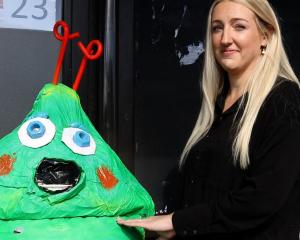By Kim Thomas

The study builds on evidence of ‘quake brain’ already gathered by a University of Otago psychological research team. They found significant impairment in memory and other cognitive functions such as emotional processing in Cantabrians who experienced disruptions because of the quakes but described themselves as being ‘resilient’.
This ‘resilient’ group experienced ‘moderate to severe’ impacts as a result of the quakes – such as loss of income, witnessing falling buildings, loss of loved ones, or property loss. Seven years after the first Christchurch earthquake, one in three of the resilient group admitted they had ongoing cognitive difficulties, when surveyed again by the research team.
The CMRF-funded study will examine this issue further by assessing the psychological, cognitive and functional abilities of more than 200 people aged in their early 40s who were exposed to the majority of the major earthquakes and aftershocks. It will also provide practical recommendations on how to address any common impairments found.
Participants are part of the world-renowned Christchurch Health and Development Study (CHDS). This group has been studied by researchers since they were born in Christchurch in the late 1970s.
Data has been gathered from all aspects of their lives, which allows detailed examination of the impact of the earthquakes and other stressors.
CMRF chairman Geoff Cranko said the study is crucial to understanding how major disruptions and stress caused by the quake sequence have shaped and affected Cantabrians.
A key output of the study will be recommendations on how people can regain cognitive functioning and better cope in their day-to-day lives. The research could also be relevant to agencies dealing with Covid-19-related issues, Cranko said.
There is a growing international research interest in brain changes related to trauma or exposure to ongoing stressors, such as the quake sequence, or what many people are experiencing with Covid-19 and its associated social, economic and mental health impacts.
"We selected this quake-related project because it could have major benefits for understanding and helping not only those in Canterbury but a wider population in years to come.”
Dr Katie Douglas is the recipient of the $213,000 and will lead the two-year quake research project. The study is the first to investigate rates of cognitive difficulties in a large, longitudinal cohort exposed to earthquakes and multiple stressors.
Douglas said these brain functions such as memory are essential to surviving and thriving in everyday work and domestic situations.
"These people are in an exciting but often stressful time of their life," Douglas said.
"Many will be in senior work roles, parenting families and many may be involved in the care of elderly parents.
"It’s a busy time in life and if the continuing impact of earthquakes is impairing their ability to carry out everyday tasks we want to understand the key factors causing this and provide solutions to help them.
"Easily-accessible digital tools or simple brain training strategies could be used to address cognitive difficulties in otherwise healthy people such as those in our study."
This study is supported by the Jaguar Land Rover Trust.













